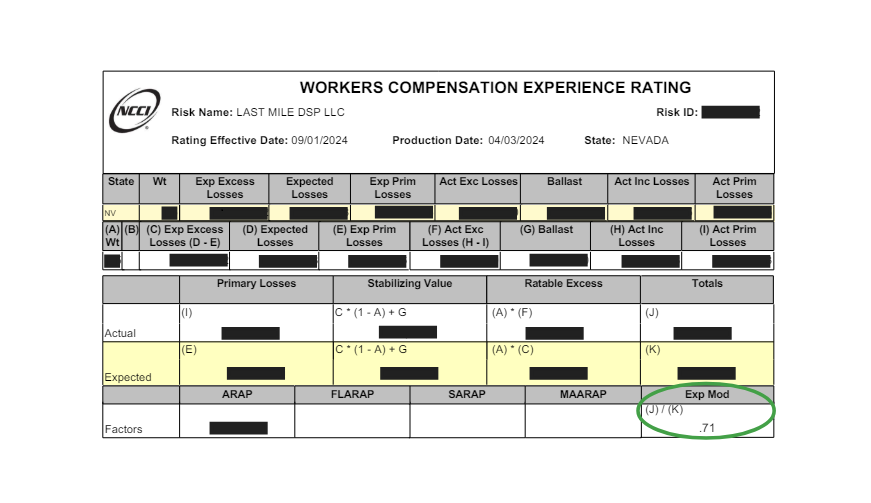In an industry where high turnover rates, burnout, and injury claims are the norm, Last Mile DSP, LLC, has managed to stand out by earning an impressive .71 Workers’ Compensation Experience Rating (E-Mod). Since its inception in August 2019, Last Mile DSP (LMML) has been at the forefront of innovative workforce management, proving that a strategic focus on work-life balance can yield remarkable results in employee retention and safety. At the heart of this transformation is the revolutionary 2on2off work schedule pattern.
The Power of Work-Life Balance
The 2on2off work schedule pattern is a game-changer. This innovative scheduling system divides employees into two teams, each working two consecutive days followed by two days of rest. This model ensures that every DA gets adequate time between shifts to rest, relax, and recharge. The immediate impact of this scheduling system is a significant improvement in focus and attention to detail, a factor often overlooked in traditional work schedules.
Why Work-Life Balance Matters
Work-life balance is more than just a buzzword; it is a critical component of a sustainable workforce strategy. When employees have regular breaks from work built into their schedule, they are less likely to experience burnout. Burnout leads to mistakes, accidents, and high turnover rates—issues that plague many DSPs. By providing DAs with a schedule that respects their need for rest, Last Mile DSP has created an environment where employees feel valued and motivated.
Longer Employment, Safer Workforce
One of the most compelling outcomes of the 2on2off work schedule is its impact on employee tenure. Last Mile DSP, located in the scorching hot city of Las Vegas, has an impressive average employee tenure of 1 year, 10 months, which proves that DAs who have a balanced work-life schedule are more likely to stay with the company longer. This longevity translates directly into a safer workforce. The longer DAs are employed, the more experienced and skilled they become. They develop a deeper understanding of safety protocols, become more proficient in their roles, and are less likely to make errors that could lead to injuries.
Reducing Injuries, Lowering Costs
With longer-tenured employees, Last Mile DSP has seen a substantial decrease in workplace injuries. Fewer injuries mean fewer workers’ compensation claims, which directly impacts the company’s E-Mod. In an era where insurance costs are rising, every reduction in these rates matters immensely to the health and viability of a business. By focusing on employee well-being, Last Mile DSP has not only improved safety but has also achieved significant cost savings.
The Broader Implications
The success of Last Mile DSP serves as a powerful example for other DSPs and businesses. The 2on2off work schedule pattern demonstrates that innovative scheduling can lead to a host of benefits, including improved employee satisfaction, enhanced safety, and reduced costs. This model challenges the traditional approach to workforce management, proving that prioritizing work-life balance is not just a moral imperative but a strategic advantage.
Conclusion
Last Mile DSP’s achievement of a .71 Workers’ Compensation Experience Rating E-Mod is a testament to the power of work-life balance. The 2on2off work schedule pattern has revolutionized the way the company operates, leading to longer employee tenures, safer working conditions, and significant cost savings. As the industry continues to grapple with issues of burnout and rising insurance costs, Last Mile DSP’s strategy offers a compelling blueprint for success. Work-life balance, facilitated by innovative scheduling, is not just the solution to burnout—it is the foundation for a thriving, resilient business.




